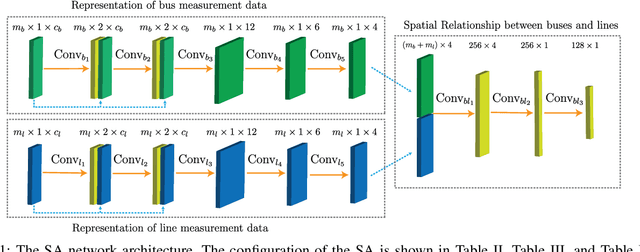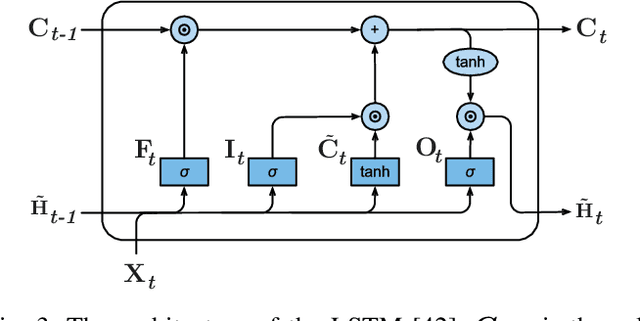PowerFDNet: Deep Learning-Based Stealthy False Data Injection Attack Detection for AC-model Transmission Systems
Paper and Code
Jul 15, 2022



Recent studies have demonstrated that smart grids are vulnerable to stealthy false data injection attacks (SFDIAs), as SFDIAs can bypass residual-based bad data detection mechanisms. The SFDIA detection has become one of the focuses of smart grid research. Methods based on deep learning technology have shown promising accuracy in the detection of SFDIAs. However, most existing methods rely on the temporal structure of a sequence of measurements but do not take account of the spatial structure between buses and transmission lines. To address this issue, we propose a spatiotemporal deep network, PowerFDNet, for the SFDIA detection in AC-model power grids. The PowerFDNet consists of two sub-architectures: spatial architecture (SA) and temporal architecture (TA). The SA is aimed at extracting representations of bus/line measurements and modeling the spatial structure based on their representations. The TA is aimed at modeling the temporal structure of a sequence of measurements. Therefore, the proposed PowerFDNet can effectively model the spatiotemporal structure of measurements. Case studies on the detection of SFDIAs on the benchmark smart grids show that the PowerFDNet achieved significant improvement compared with the state-of-the-art SFDIA detection methods. In addition, an IoT-oriented lightweight prototype of size 52 MB is implemented and tested for mobile devices, which demonstrates the potential applications on mobile devices. The trained model will be available at \textit{https://github.com/FrankYinXF/PowerFDNet}.
 Add to Chrome
Add to Chrome Add to Firefox
Add to Firefox Add to Edge
Add to Edge